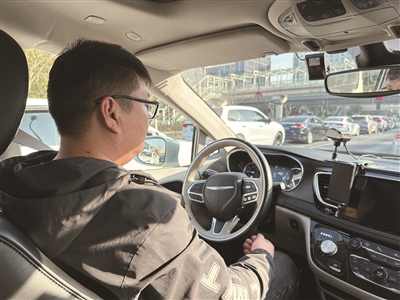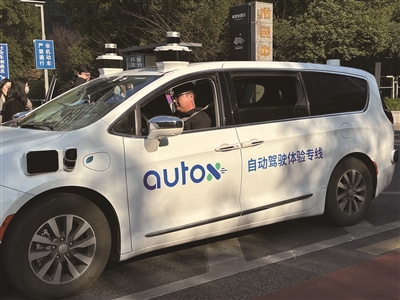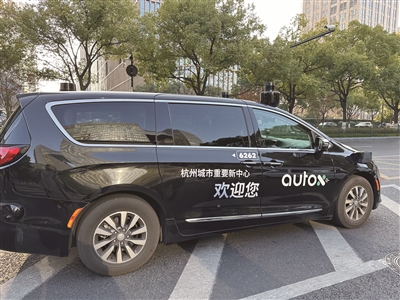
During the trail ride of the unmanned taxi in Hangzhou, the safety officer remained hands-off the steering wheel throughout. Photo: Han Chenke


By Zhu Jingning
When a taxi slowly pulls over in front of you, yet there is no one inside, do you have the courage to open the door and get in?
When the unmanned taxi services were launched at the Citizen Center in Hangzhou last Monday, the science fiction movie scene was turned into a reality.
New robotaxi trials in urban areas
Powered by level-4 autonomous driving technology, the 50 km/h taxi services offer a cutting-edge riding experience for passengers heading to Hangzhoudong Railway Station. It is China's first intelligent connected vehicle route that connects the high-speed railway station with the urban area.
Another route, from the Citizen Center to Hangzhou Xiaoshan International Airport, also provides intelligent connected Robotaxi services.
During the trial operation, the experience of intelligent network taxi is free under the condition of advanced booking. The taxi will be dispatched according to the reservation every day, allowing a maximum of two people to travel each time.
Moreover, a safety officer will be on board for each trip, who is able to switch to manual driving in case of an emergency.
So far, specific requirements are placed for passengers making reservations, such as being aged under 70 and no drinking, and passengers will take the ride after identity verification. In the subsequent comprehensive promotion stage, it will be gradually popularized to all citizens.
More autonomous driving routes on the way
On Nov 3, 2023, Hangzhou announced the second batch of intelligent connected vehicle test and application pilot areas, with Shangcheng and Yuhang districts making the list, following Binjiang which was the first district being selected.
The trial operation of intelligent connected vehicles in Shangcheng district means that driverless taxis have entered the lively downtown for the first time. The road conditions encountered by vehicles are more complex than ever, whether to shuttle on the city main roads, branch roads, cross-river tunnels, expressways, or run day and night in all kinds of weather.
While driving, the vehicle can be very "smart". It can dynamically adjust the driving strategy according to the road conditions in real time, including flexible acceleration and deceleration, lane change and dealing with overtaking. It is worth mentioning that the driverless taxi gives priority to pedestrians at zebra crossings.
"At present, the vehicle can pick up passengers at the start point and drop them off at the destination on two lines, but it can realize stopovers along the route in the future." The relevant person in charge of the vehicle operation company said.
According to Shangcheng district's Bureau of Economy and Information Technology, the district will also accelerate the implementation of intelligent connected car application scenarios, and launch in an orderly manner pilot projects such as cultural travel line of Charming Song Dynasty, business line of digital fashion, and society service line.
In the long term, with the application of intelligent connected vehicles in the whole area of Shangcheng, Binjiang and Yuhang, passengers can also take unmanned robotaxis to and from the three urban areas.
Create a future city through intelligent vehicles
As early as 2018, Hangzhou took the lead in the country in conducting road tests for intelligent connected vehicles.
In recent years, Hangzhou has rolled out a series of innovative projects and characteristic scene applications: it has created the country's first intelligent connected car high-speed rail travel line in the central city, built the first autonomous driving sightseeing line in Zhejiang Province, and become the second city in the country to open intelligent connected car services at the airport after Wuhan.
Among them, Neolix has realized intelligent logistics distribution in Hangzhou by investing nearly 100 autonomous vehicles to help courier companies transport packages from warehouses and transfer centers to communities.
At present, Hangzhou is sparing no effort in building five industrial ecosystems and supporting future industries such as intelligent connected vehicles.
In this regard, Hangzhou aims to achieve the full opening of the intelligent connected vehicle testing and application in the city by 2025, creating a national testing demonstration zone and setting a model for the commercial application of intelligent connected vehicles.
